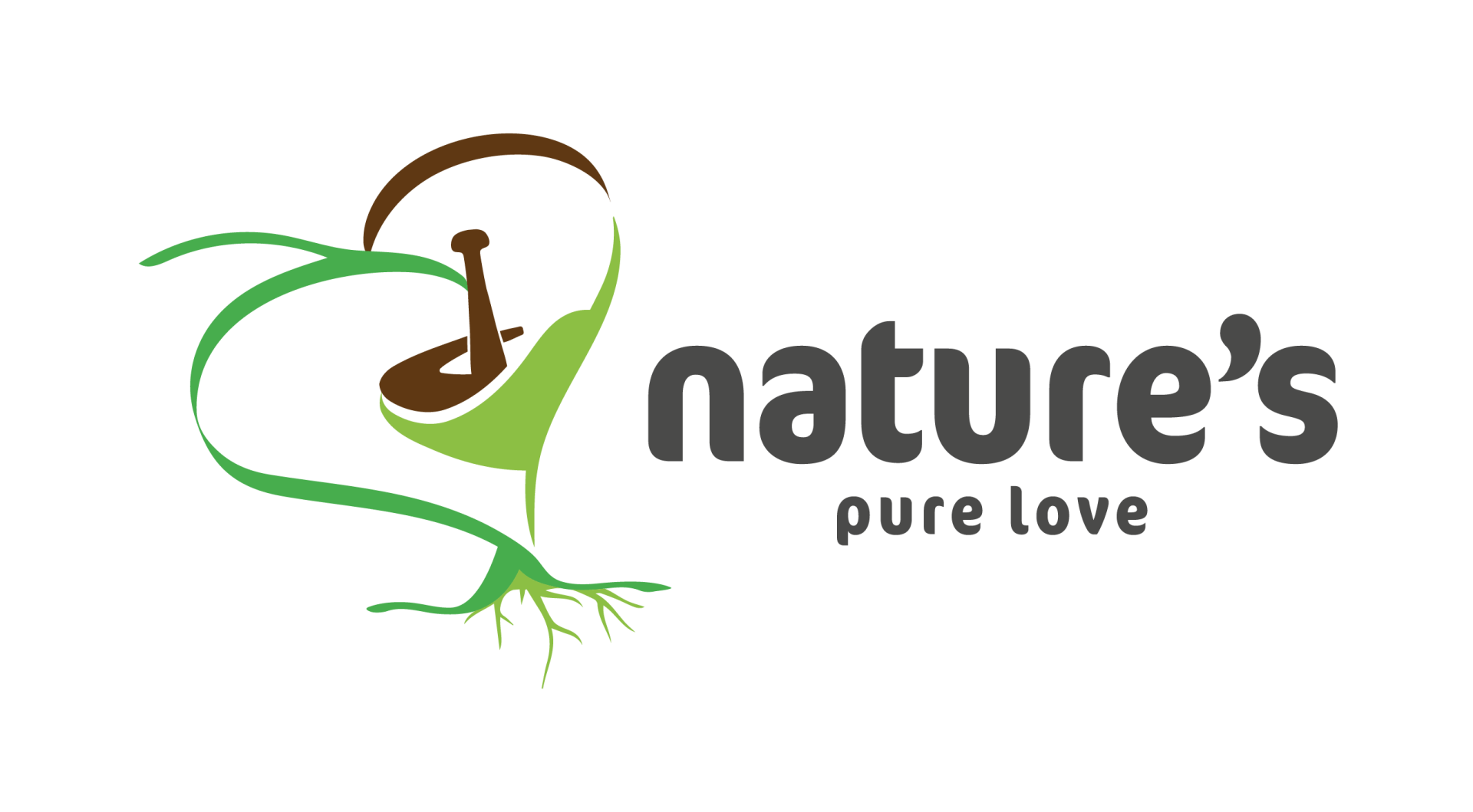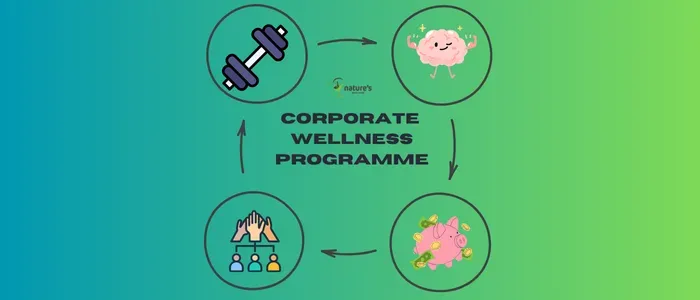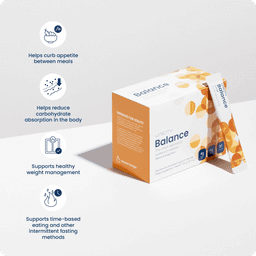How to Manage chronic pain
How to Manage Chronic Pain
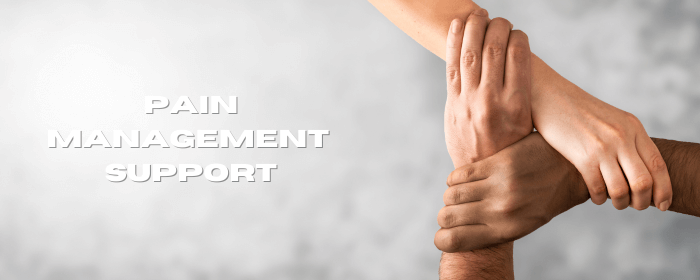
Introduction
Chronic pain is a persistent, often debilitating condition that affects millions worldwide. Unlike acute pain, which is temporary and usually resolves with treatment, chronic pain can last for months or even years. Managing chronic pain is essential for both physical and mental well-being, enhancing overall quality of life. So, how do we address this challenge head-on? Let’s explore.
What is Chronic Pain
Chronic pain is a persistent and prolonged pain lasting over three months, often continuing well beyond the typical healing time for an injury or illness. Unlike acute pain, which serves as a warning signal of potential harm, chronic pain is an ongoing condition that can arise without an apparent cause or continue long after the initial injury has healed.
This type of pain can stem from various sources, including past injuries, ongoing illnesses like arthritis, or even conditions affecting the nervous system, such as fibromyalgia.
Chronic pain can significantly impact an individual's quality of life, affecting physical activity, emotional well-being, and overall functionality. Managing chronic pain often requires a comprehensive approach that includes medical treatment, physical therapy, psychological support, and lifestyle adjustments.
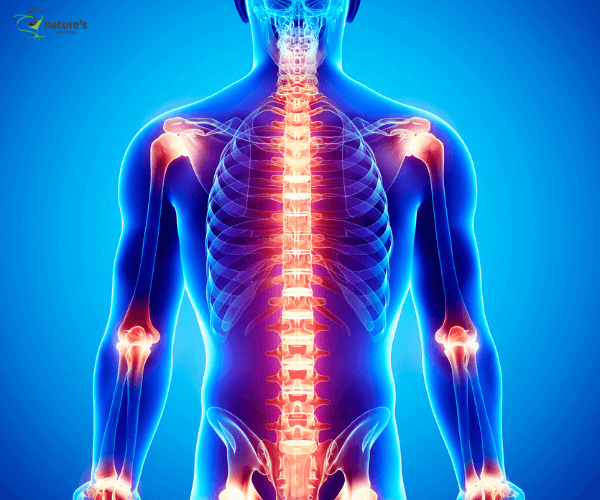
Types of Chronic Pain
Neuropathic Pain
Neuropathic pain arises from damage to the nervous system. It can feel like burning, stabbing, or shooting sensations and is often linked with conditions like diabetes or multiple sclerosis.
Nociceptive Pain
Nociceptive pain results from tissue damage. It is typically described as aching or throbbing and is common in conditions like arthritis or injuries.
Mixed Pain
Some individuals experience a combination of neuropathic and nociceptive pain, known as mixed pain. This type can be particularly challenging to manage due to its complex nature.

Complimentary Medication for Chronic Pain
Living with chronic pain can feel like a constant battle. It can affect every aspect of your life, from daily activities to mental well-being. However, there is hope through complementary medication and holistic approaches that can help manage and even alleviate chronic pain. At Nature's Pure Love (NPL), we are dedicated to providing natural and effective solutions for those seeking relief from chronic conditions. Let's explore some of the complementary therapies and products we offer that can support your journey to better health.
The Role of Complementary Medicine
Complementary medicine refers to treatments that can be used alongside conventional medical treatments. These therapies focus on holistic health and aim to treat the whole person, not just the symptoms. Complementary treatments for chronic pain can include nutritional supplements, herbal remedies, physical therapies, and lifestyle modifications.
NPL's Holistic Approach: The C.R.E.A.M Model
At NPL, we use our unique C.R.E.A.M model to help manage chronic pain:
- Cleanse: Detoxify the body to remove harmful toxins that can contribute to pain and inflammation. We recommend dietary modifications and detox protocols, supported by products like Unicity Cleanse / Aloe Vera.
- Regenerate: Promote cellular repair and rejuvenation with natural supplements and therapeutic modalities. Our Unicity Joint Mobility product, which contains valuable collagen and plant extracts, supports joint health and reduces pain.
- Elevate: Address emotional and mental well-being through stress management techniques and mindfulness. Our Viva+ supplement helps relieve stress and support a healthy nervous system.
- Activate: Implement healthy lifestyle habits, including tailored exercise programs and nutritional guidance. Unicity Omega Life 3 Resolv supports joint health and reduces inflammation.
- Maximize: Provide ongoing support and resources to maintain optimal health. Our comprehensive plans, like the 6-month C.R.E.A.M Holistic Health Plan, offer tailored treatment programs, assessments, and mentoring sessions to ensure long-term well-being.
To get these amazing services, click on the following link to our store
Key Products for Chronic Pain Relief
- Unicity Bios 7
- This supplement supports metabolic health, digestion, and balanced glucose levels, helping to prevent cravings and support fat burning, which can be beneficial in managing pain and inflammation.
- Unicity Omega Life 3 Resolv
- Essential for heart and joint health, this product helps to maintain healthy levels of inflammation in the body.
- Unicity Joint Mobility
- Designed to protect and support the joints, this supplement contains collagen and plant extracts that promote joint health and reduce pain.
- Unicity Bio-C
- A powerful vitamin C supplement that supports the immune system, helps protect cells from oxidative stress, and promotes overall health.
- Arthritic Pain is Not a Dead End eBook
- This eBook provides a comprehensive guide on managing and reducing arthritic pain using holistic approaches and NPL's effective plans. It is available as part of our full C.R.E.A.M plan.
Incorporating Complementary Treatments into Your Routine
To effectively manage chronic pain with complementary treatments, consider the following steps:
- Consult with a Holistic Healthcare Provider: It's important to get a personalised treatment plan that suits your specific needs. NPL offers consultations to help you get started.
- Stay Active: Regular exercise can reduce pain, improve flexibility, and enhance your overall fitness. Discuss with your provider the best exercise plan for you.
- Maintain a Healthy Diet: Eating a balanced diet rich in fruits, vegetables, whole grains, and lean protein can reduce inflammation and provide essential nutrients.
- Manage Stress: Techniques like deep breathing, meditation, and mindfulness can help manage stress, which can exacerbate pain.
- Use Supplements Wisely: Incorporate NPL's high-quality supplements into your daily routine to support overall health and target specific pain points.
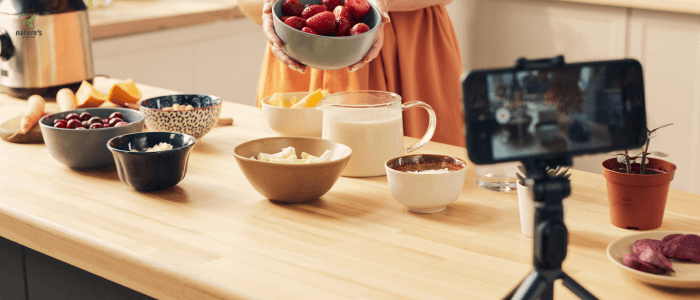
Physical Therapy and Exercise for Chronic Pain Relief
Living with chronic pain can significantly impact daily life, but physical therapy and exercise offer promising solutions. These therapies not only target pain relief but also improve overall mobility and strength, helping you lead a more active and fulfilling life. At Nature's Pure Love (NPL), we believe in a holistic approach to pain management, incorporating a variety of complementary therapies to support your health journey.
Benefits of Physical Therapy
Physical therapy is a vital component of managing chronic pain. It involves exercises and treatments designed to improve mobility, strengthen muscles, and reduce pain. Here are some key benefits:
- Improved Mobility: Tailored exercises help increase flexibility and range of motion.
- Strengthened Muscles: Strengthening the muscles around painful areas can provide better support and reduce pain.
- Pain Reduction: Targeted physical therapy can alleviate pain through specific exercises and techniques.
Types of Exercises
Engaging in regular exercise is essential for managing chronic pain. However, it's crucial to choose the right types of exercises to avoid exacerbating pain:
- Low-Impact Exercises: Swimming, walking, and cycling are excellent choices as they are gentle on the joints.
- Stretching: Regular stretching can help maintain flexibility and prevent stiffness.
- Strength Training: Light weight lifting or resistance exercises can build muscle strength without putting undue stress on the body.
Creating a Personalised Exercise Plan
Working with a physical therapist ensures that your exercise plan is tailored to your specific needs and conditions. A personalised plan might include:
- Initial Assessment: Evaluating your current fitness level and pain areas.
- Goal Setting: Establishing realistic goals based on your capabilities.
- Customised Exercises: Develop exercises that target your pain points and improve overall strength and mobility.
- Regular Monitoring: Adjusting the plan as needed to ensure optimal results and avoid injury.
Alternative and Complementary Therapies
In addition to physical therapy and exercise, several alternative therapies can complement your pain management plan:
- Acupuncture: This ancient practice involves inserting thin needles into specific points on the body to alleviate pain. It's particularly effective for chronic pain management.
- Chiropractic Care: Chiropractors manipulate the spine and other body parts to relieve pain and improve function, which is especially beneficial for back and neck pain.
- Massage Therapy: Massage can relax muscles, improve circulation, and reduce pain, making it a popular choice for those seeking relief from chronic pain.

Mind-Body Techniques
Incorporating mind-body techniques can significantly enhance pain management by addressing the psychological aspects of chronic pain:
- Meditation and Mindfulness: These practices can help manage pain by reducing stress and altering the perception of pain.
- Yoga and Tai Chi: These gentle exercises combine physical movement with mindfulness, improving flexibility, strength, and mental well-being.
Biofeedback: This technique teaches you to control physiological functions, such as heart rate and muscle tension, which can help manage pain.
Diet and Nutrition
Your diet plays a crucial role in managing chronic pain. Incorporating certain foods and supplements can help reduce inflammation and support overall health:
- Anti-Inflammatory Foods: Foods like fatty fish, leafy greens, and berries can help reduce inflammation and pain.
- Supplements for Pain Relief: Omega-3 fatty acids, turmeric, and glucosamine are known for their pain-relieving properties.
- Importance of Hydration: Staying hydrated is essential for joint lubrication and overall health.
Lifestyle Changes
Adopting certain lifestyle changes can significantly improve your ability to manage chronic pain:
- Stress Management: Techniques like deep breathing, journaling, and spending time in nature can help reduce stress, which often exacerbates pain.
- Sleep Hygiene: Maintaining a regular sleep schedule and creating a restful sleeping environment are crucial for pain management.
- Avoiding Triggers: Identifying and avoiding pain triggers, such as specific activities or foods, can help prevent flare-ups.
Cognitive Behavioural Therapy (CBT)
CBT is an effective tool in managing chronic pain by changing negative thought patterns and behaviours:
- Understanding CBT: This type of psychotherapy focuses on altering negative thought patterns that can worsen pain.
- How CBT Helps with Chronic Pain: CBT provides strategies for coping with pain, improving mood, and enhancing quality of life.
- Finding a CBT Therapist: Look for a licensed therapist who specialises in pain management and CBT techniques.
Support Systems
Having a strong support network is vital when managing chronic pain:
- Family and Friends: Emotional and practical support from loved ones can make a significant difference.
- Support Groups: Sharing experiences and tips with others who understand what you’re going through can be incredibly beneficial.
Professional Counselling: Professional counselling can address the emotional and psychological aspects of living with chronic pain.
Technological Aids
Modern technology offers several tools to help manage chronic pain:
- TENS Units: These devices deliver electrical impulses to the affected area, providing pain relief.
- Mobile Apps for Pain Management: Apps can offer pain tracking, relaxation exercises, and other tools to help manage chronic pain.
- Wearable Devices: Devices that monitor physical activity and sleep can provide valuable data to help manage pain.
Managing Chronic Pain at Work
Balancing work and health is crucial for managing chronic pain effectively:
- Ergonomic Adjustments: Making ergonomic adjustments to your workspace can reduce pain and improve comfort.
- Communicating with Employers: Open communication with your employer about your pain can lead to accommodations that make your work environment more manageable.
- Balancing Work and Health: Adjusting your workload and taking regular breaks can help you maintain a balance between work and health.
Long-Term Strategies
Effective pain management often involves long-term strategies:
- Setting Realistic Goals: Setting achievable goals can keep you motivated and focused on progress.
- Monitoring Progress: Regularly tracking your pain levels and treatment outcomes helps in making necessary adjustments.
Adjusting Treatment Plans: As your condition changes, your treatment plan might need adjustments. Stay in regular contact with your healthcare provider to ensure your plan remains effective.
Conclusion
Managing chronic pain is a multifaceted approach that involves medical treatments, lifestyle changes, and support systems. By combining these strategies, you can improve your quality of life and gain better control over your pain. Remember, you are not alone in this journey, and with the right tools and support, it is possible to live a fulfilling life despite chronic pain.
Frequently Asked Questions
What is the best exercise for chronic pain?
Low-impact exercises such as swimming, walking, and stretching are generally recommended as they help maintain fitness without worsening pain.
How does diet affect chronic pain?
A diet rich in anti-inflammatory foods like leafy greens, berries, and fatty fish can help reduce inflammation and pain.
Can meditation really help with pain management?
Yes, meditation and mindfulness practices can alter your perception of pain and reduce stress, making pain easier to manage.
How can I find a support group for chronic pain?
You can find support groups through local healthcare providers, online forums, and organisations dedicated to pain management.
You can also contact us at Nature’s Pure Love to speak to our Holistic Health and wellness specialist.

